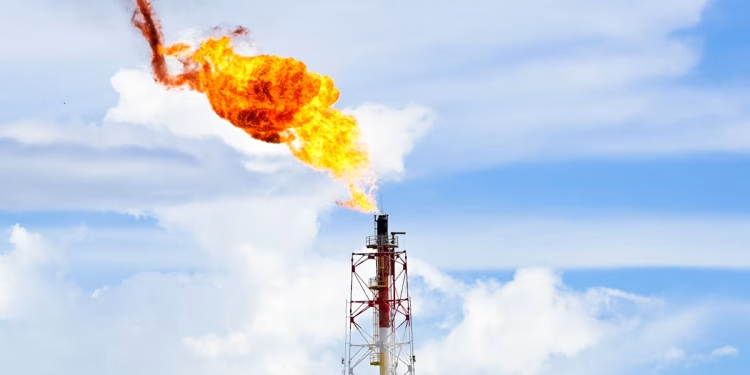Mr Bayode Ogidan, an oil and gas pipeline expert, says gaps in infrastructure, weak regulatory enforcement and competing economic priorities have contributed to the continued gas flaring in Nigeria. He says, “Gas flaring in Nigeria continues to pose significant environmental and economic challenges.
“While efforts have been made to curb the practice, gaps in infrastructure, regulatory enforcement, and economic priorities have allowed it to persist.
“Addressing these issues through stronger regulations, investment in gas infrastructure, and community involvement is essential to mitigating the harmful impacts of gas flaring.
“By harnessing the potential of associated gas, Nigeria could not only reduce its environmental footprint but also unlock new economic opportunities that benefit both local communities and the nation as a whole.”
Speaking on environmental impact, Ogidan noted that gas flaring, the burning of natural gas that accompanied crude oil extraction, remained a practice that had persisted for decades in Nigeria.
The expert highlighted the environmental consequences of gas flaring, delved into the factors driving this practice, examined its economic effects, and proposed possible solutions.
Ogidan noted: “This issue not only damages the environment but also represents a loss of potential economic value.
“In spite of a decline in oil production from some fields, gas flaring remains a significant issue in some facilities. While some measures have been implemented, loopholes persist.
“The government’s continued reliance on oil may have hindered stricter enforcement of regulations.”
According to him, this process can be hazardous due to the height of the flare stack (10-100 metres) and the potential for missed ignition attempts when the facility has a faulty flare ignition system.
“Due to climate change and increased oil production, fishing is less profitable.
“The marine life and ecosystem in these areas have been affected by the constant heat generated by the flares,” he added.
Ogidan identified hazards including air pollution, health concerns, climate change, and acid rain, which harmed soil fertility and agriculture.“For farmers in the Niger Delta, where gas flaring is most rampant, this means lower crop yields and a threat to food security.
“Contaminated water sources and damaged farmlands directly affect local economies that depend on agriculture,” he said.
The consultant added that the practices had also led to the loss of biodiversity.
He said: “The heat and pollution from gas flaring also damage nearby ecosystems. Wildlife, plants, and aquatic life suffer as their habitats are destroyed or polluted.
“This disruption can lead to the loss of species that are critical for maintaining a healthy and balanced environment.
“It can further threaten both local biodiversity and the wellbeing of communities dependent on these ecosystems for sustenance.”
Speaking on the economic impacts of gas flaring, Ogidan said that the practice had also led to wasted economic resources.
“The gas flared represents a significant economic resource that could be utilised for energy generation, both for domestic consumption and export.
“Nigeria loses billions of dollars each year by burning off this valuable resource instead of harnessing it for electricity, industrial use, or export as liquefied natural gas.
“Gas that could power homes, industries, and transportation is wasted in the skies above oil fields,” he said.
He said that the practice had also led to economic hardship for local communities and increased healthcare costs.















